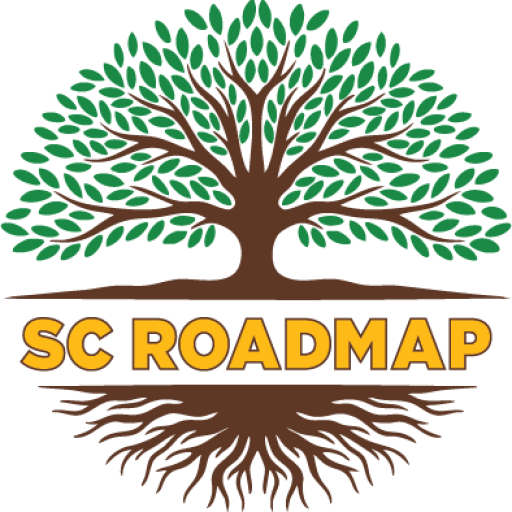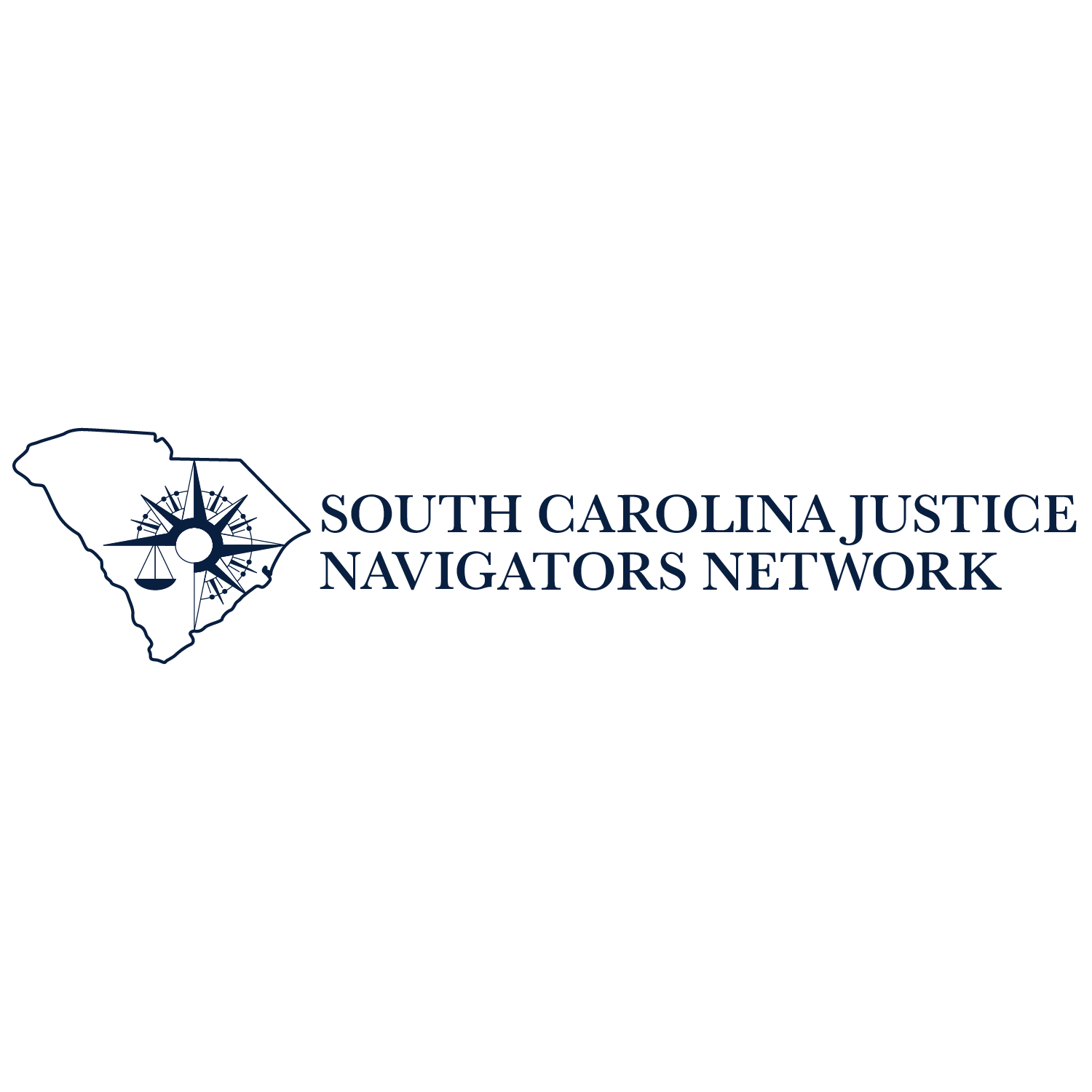What: The South Carolina Justice Navigators Network (SCJNN)
Where: Over the past year, SCJNN has served the Charleston Tri-county–Charleston, Berkeley and Dorchester Counties, with the intention to expand into additional counties in the future.
When: The SCJNN officially started with planning, curriculum development, and partnerships in October 2022. However, the Georgetown University Law Center, Legal Link, Charleston Legal Access (CLA) and Charleston Pro Bono Legal Services (CPBLS) collaborated on foundational work over the summer of 2022.
Why: The SCJNN is designed to address the “justice gap,” which is the difference between the civil legal needs of low-income Americans and the resources available to meet those needs. The demand for legal services is high, but accessibility is low, and people experiencing poverty are excluded from equitable participation in the justice system.
The local legal aid partners that brought SCJNN to South Carolina—CLA and CPBLS—understood firsthand the justice gap from their own experiences working with clients with no financial resources to resolve their legal issues. In 2019, they were both integral in starting the innovative Charleston-area Housing Court model, designed to stem the tide of evictions displacing families in the Tri-county area. In 2016, North Charleston had the highest eviction rate in the United States. Today, South Carolina’s rates remain high. CLA & CPBLS and all other South Carolina organizations facilitating legal assistance understand the value in training non-lawyers in “Legal First Aid” to expand the legal ecosystem.
This access to justice intervention is new to South Carolina, where the justice gap is just as present as it is across the United States.
Who: The SCJNN trains the staff of nonprofit organizations serving people experiencing poverty in Legal First Aid. This gives them a legal navigation skill set they can then use with the clients they serve. To date, SCJNN has worked with 20 Tri-county organizations. SCJNN also provides post-training support, providing justice navigators with additional legal resources and consultation should questions or legal issues arise. Ultimately, the community is served by SCJNN. Legal information is placed in the hands of the people, who are best positioned to address their challenges with navigator support.
SCJNN hopes to make Legal First Aid accessible to the broader community, reaching beyond structured nonprofit organizations to entities such as libraries, faith communities, state agencies, and community resource persons to increase access to justice for all.
How: A seed grant from the Ford Foundation provided the financial resources for our pilot year, and the Sisters of Charity Foundation has partnered with us to continue our work. A large number of individuals and organizations contributed their time and expertise to help make this happen, as subject matter experts, community leaders, connectors, introducers, and advocates. The SC Access to Justice Commission was especially helpful to the SCJNN in customizing their Legal Resource Finder app to the Legal First Aid curriculum. Legal Link worked to customize their CA-based Legal First Aid curriculum to the Lowcountry, while CLA and CPB were subject matter experts and provided consultations to navigators. All 13 legal aid organizations in the state met with SCJNN to describe the scope of their work so that SCJNN could accurately explain it to navigators. SCJNN has also connected with numerous organizations, such as the South Carolina Housing Justice Network, doing statewide work to address some of the issues that are covered in Legal First Aid.
ProTips: SCJNN director Deborah Mihal offers the following suggestions:
It can take a long time to meet and/or talk with potential trainer partners and allies—sometimes months, even with polite and consistent follow up. Plan ahead and start early!
In person meetings to get introduced were appreciated and successful. Initiating in person meetings (if feasible) demonstrates a commitment to being present for the organization, your interest in their facility, staff, and clients, as well as an opportunity to get to know your contact beyond the limits of a videoconference.
Personality and communication differences will happen! Practicing self-care, mindfulness, and patience is important. Having a safe work/project support partner(s) to bounce feelings off, provide perspective, and offer objective suggestions for problem solving goes a long way to getting you refocused on the mission. Mediation skills are very handy!
Connect with other jurisdictions undertaking a similar project to compare notes and learn.
State, government, or institutional processes can be slow and burdensome. Anticipate this, start early, and identify resources within such systems (i.e., relationships with key staff) to aid in getting things done.
Engage key stakeholders as early as possible in your development process, and find ways to keep them engaged when you don’t need something from them, even if it’s just an email to check in.
Involve the community that you are serving as early as possible in your development process.
Consider an advisory board or an official Board of Directors, depending on the structure of your organization. Ensure that such leadership and perspective reflects the community—center all-inclusive diversity in your choices. In addition to those individuals who took an early and special interest in your endeavor, take into consideration:
- If considering organizational staff for such a role, have they been trained as navigators or are committed to be trained? Are they leadership, or in a direct service role with opportunities to use the LFA curriculum to support clients?
- Is organizational client representation possible and/or appropriate? What about clients who were referred to a legal partner organization because of this intervention?
- Do you want community representatives who are not connected with a training partner organization for perspective? Are they truly representatives, and what is their interest in such a role?
- What about other legal aid community representatives—pro bono attorneys from orgs not already engaged with your project?
Account for local nonprofit community culture. Consider social service organizations and legal organizations, both types of orgs together, and their perception of a new organization entering into that mix (you). Challenging histories may have a bearing on partner viewpoints about all organizations. Collaborate at all opportunities, even if advised to the contrary—develop partner relationships with an open mind.
As you may be viewed as competition for financial or other resources in the local nonprofit ecosystem, be intentional about resource sharing when possible and maintaining a distinct organizational identity.
Start your search for financial resources to sustain your initiative earlier than you think that you need it! Avail yourself of all possible sources of information for grant seeking and philanthropic support. As you may be doing this on your own, account for the lead time and time resources needed to undertake this component.
Meaningful Stats:
20 Tri-county training partner organizations (and counting)
123 justice navigators trained since April, 2023
Evaluation Outcomes:
94% of navigators experienced perceived Legal Capability (Knowledge, Self-Efficacy and Confidence) improvement as a result of Legal First Aid training, which is a very large effect, significant improvement.
The Legal First Aid Trainings satisfied principal goals of trainees—in particular, to address gaps in client service.
99% of navigators report at least Moderate Satisfaction with Legal First Aid training.
At a three month follow up: 67% of Justice Navigators have used Legal First Aid to support clients.

